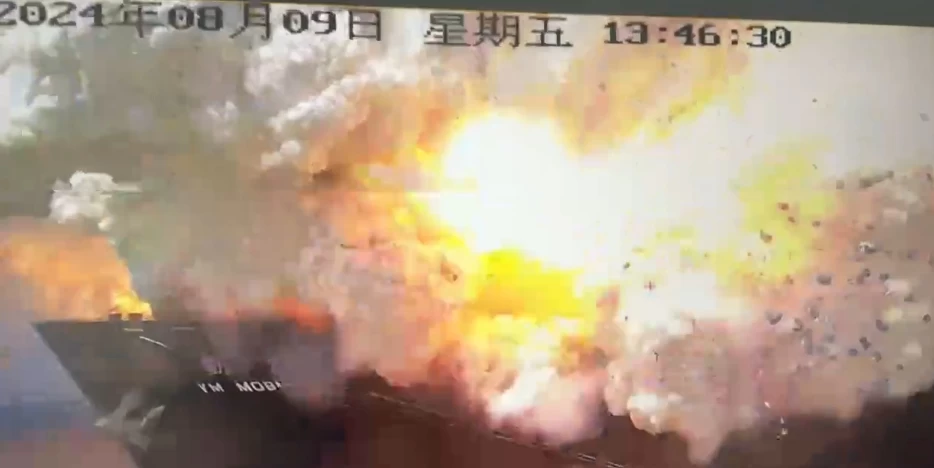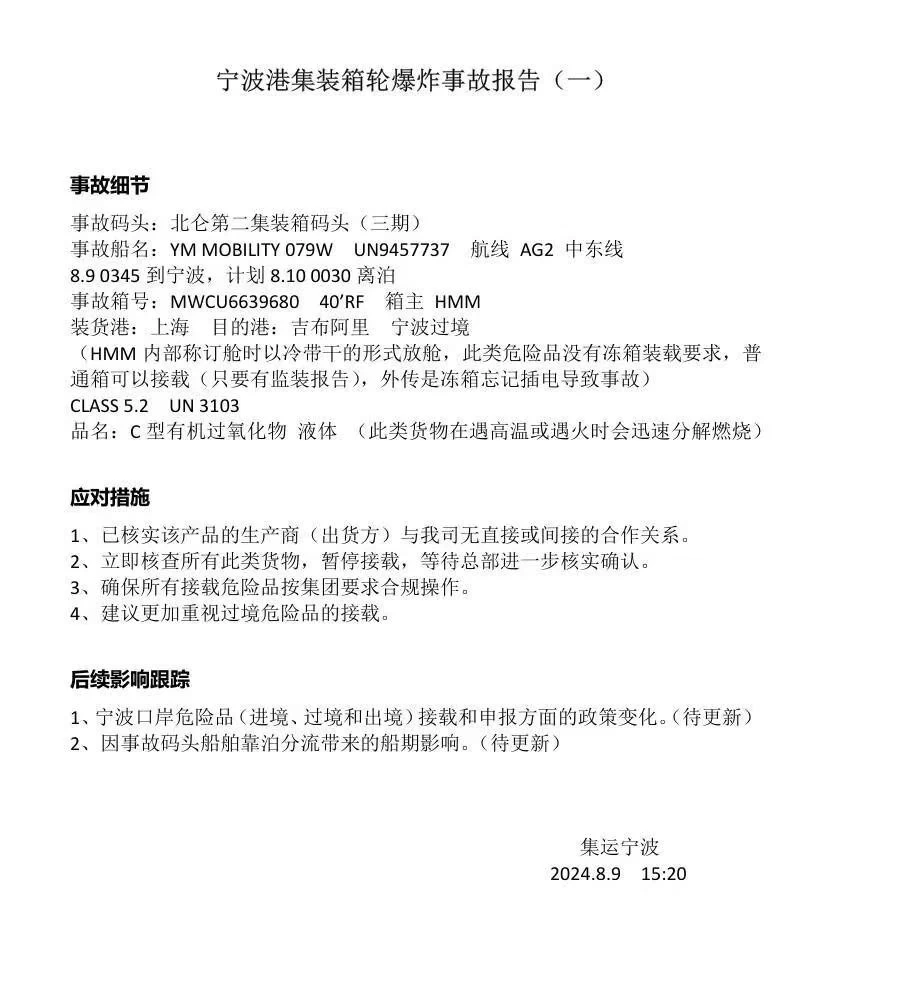Sudden! A container exploded on a cargo ship in Beilun Port Area, Ningbo
This afternoon (August 9), an accident occurred on a container ship docked at the container terminal in the Beilun Port area of Zhoushan Port, Ningbo, Zhejiang. Fortunately, no casualties were reported. After investigation, Ningbo Port also responded.

During the high temperature period in summer, the risk of accidents involving flammable and explosive hazardous chemicals increases significantly. In order to avoid tragedies, relevant practitioners must maintain a high degree of vigilance and strictly carry out daily storage and transportation of hazardous chemicals.
Discuss why hazardous chemical fires occur frequently during high temperature seasons:
First, rising temperatures in summer lead to an increase in the volume and pressure of hazardous chemicals. Flammable liquids expand at high temperatures. When stored in a closed container, the volume expansion and vapor pressure increase, causing the pressure inside the container to rise, which may cause damage or even rupture of the container, leading to a fire or explosion.
Second, high temperatures speed up the evaporation of liquids. The higher the temperature, the faster the flammable liquid evaporates, the higher the concentration of the vapor formed, and the greater the risk of mixing with air to form explosive gases.
Third, high temperatures in summer accelerate the oxidative decomposition and spontaneous combustion risks of certain chemicals. When heated, these chemicals may release oxygen, causing the oxidation of other substances and releasing a large amount of heat. If ventilation is poor, it may lead to spontaneous combustion.
Fourth, due to the complex nature of hazardous chemicals, it is difficult to control the temperature of some exothermic reactions and over-temperature phenomena are prone to occur.
How to safely store and transport hazardous chemicals in hot summer:
Storage:
- Warehouse construction should use fire-resistant, non-thermally conductive materials for thermal insulation, increase the length of eaves to prevent direct sunlight, thicken warehouse walls, and take appropriate ventilation measures.
- Control humidity and configure humidity recording and regulating equipment.
- Take measures to control the temperature, such as setting up a water spray cooling system, using reflective materials to reduce heat absorption, and providing reasonable ventilation.
Transportation:
- Vehicles should be equipped with shading facilities to ensure ventilation and avoid direct sunlight.
- Equipped with appropriate fire-fighting equipment on board the vehicle.
- Choose the appropriate transportation time and temperature based on the characteristics of the cargo.
Ningbo Port officials also gave a response to the reasons for the story investigation.





















